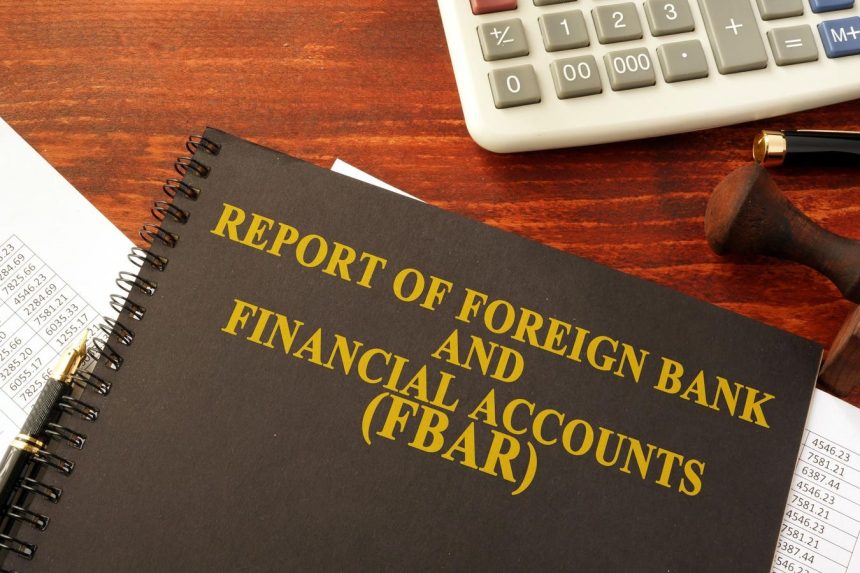The Bank Secrecy Act requires U.S. taxpayers to file annual reports with the government if their foreign accounts exceed $10,000 at any time in a calendar year. If a taxpayer fails to properly and timely file the report—referred to as an “FBAR”—the government may impose either “willful” or “non-willful” civil penalties. Because there is a significant monetary difference between the two penalties, taxpayers often question what constitutes willful and non-willful conduct.
Regrettably, the distinction between willful and non-willful conduct is not always clear. Of course, it includes intentional acts—for example, in instances where the taxpayer is aware of the filing obligation and purposely avoids it. But federal courts have also interpreted willfulness more broadly to include objective recklessness. Under this more relaxed standard, taxpayers are liable for willful FBAR penalties if they missed the FBAR filing deadline but should have known of the FBAR reporting requirement based on their individual facts and circumstances.
On the other hand, taxpayers are potentially liable for much reduced penalties if the conduct at issue is non-willful. Although there is little guidance on the meaning of non-willful in this context, the IRS has informally contended that it means negligence, inadvertence, or mistake or conduct that is the result of a good-faith misunderstanding of the law.
If you are struggling to see the difference between recklessness (which can give rise to a willful FBAR penalty) and negligence (which does not), you are not alone. In a recent report to Congress, the Taxpayer Advocate Service (TAS) argued that the two should be more distinct, particularly where the consequences are so extreme.
Given the ambiguity between objective recklessness and negligence, taxpayers and tax professionals are left trying to determine their differences through federal court decisions. For example, two recent federal court decisions out of New York (both decided on summary judgment) provide some clarity on how the courts analyze various facts to determine whether a taxpayer should be liable for willful FBAR penalties.
In U.S. v. Reyes, No. 21-cv-5578 (E.D.N.Y. Jan. 10, 2024), a married couple held signature authority over a Swiss bank account. The couple instructed the bank not to mail statements to them in the U.S. They also directed the bank not to invest any funds in U.S. securities, which would have required the bank to conduct additional U.S. reporting and withholding.
The taxpayers used a tax professional for over 40 years to prepare their income tax returns. For the years at issue, the tax preparer sent client organizers, all of which asked whether the taxpayers had foreign income. They did not return the client organizers—instead, they only provided the tax preparer with information returns. The taxpayers also never informed their tax preparer of the foreign account.
On Schedules B, the tax preparer checked the boxes “no” regarding whether the taxpayers had foreign accounts. Because FBARs were not filed timely, the IRS assessed willful FBAR penalties against the taxpayers. During the court proceedings, the taxpayers contended that they were not willful because they never reviewed their tax returns for accuracy. They also argued that they had received bad tax advice from a foreign newspaper and other third parties.
On summary judgment, the court agreed that the taxpayers were willful and sustained the willful FBAR penalties. According to the court, the taxpayers were at least reckless because: (i) they never mentioned the foreign accounts to their long-time preparer; (ii) they admitted that they had failed to review the tax returns prior to their filings; (iii) they instructed the foreign bank not to send mail to the U.S. and not to invest in U.S. securities; and (iv) the foreign account represented between 75% and 90% of their overall wealth.
By comparison, another federal court in New York held that the government failed to meet its burden of summary judgment on willfulness even where the taxpayer, similar to Reyes, conceded that he did not review the tax returns. In U.S. v. Schik, No. 20-cv-0221 (S.D.N.Y. Mar. 8, 2022), a taxpayer had millions of dollars in various Swiss bank accounts. Similar to the facts in Reyes, the taxpayer relied on a tax professional to prepare his tax returns. Also similar to Reyes, the tax preparer had checked the boxes “no” regarding whether the taxpayer had foreign accounts. But unlike Reyes, the taxpayer had offered evidence that the boxes defaulted to “no” automatically.
There were some other helpful facts in Schik. Specifically, the evidence showed that he had no formal education and that he did not personally manage the Swiss accounts. In addition, and unlike Reyes, the tax professional never asked the taxpayer to complete a client organizer or questionnaire. Based on all of these facts, the court reasoned that summary judgment on the issue of willfulness was inappropriate and should be left to a jury because there were genuine issues of material fact regarding whether the taxpayer “was willful rather than merely negligent.”
The contrasting decisions in Reyes and Schik are interesting. In both cases, the taxpayers conceded that they did not review their tax returns including Schedules B. However, the court found the taxpayer in Reyes liable for willful FBAR penalties whereas the court in Schik found genuine issues of material fact regarding the willfulness determination. Reading the two cases together, one of the more important facts for taxpayer in Schik was that he had a plausible explanation regarding his unawareness of the FBAR reporting obligation—specifically, he had relied on a tax professional who had never asked about the existence of foreign accounts, even through a client organizer or questionnaire. It certainly did not hurt that there were other sympathetic facts in Schik in that he lacked a formal education and was a Holocaust survivor.
In sum, the demarcation between objective recklessness and negligence depends largely on the taxpayer’s specific facts and circumstances. Federal court decisions, such as Reyes and Schik, provide additional insights on the facts courts find important when determining whether a taxpayer should be liable for a willful FBAR penalty or not. Because the IRS continues to target taxpayers for FBAR violations, taxpayers should rest assured that more of these court decisions are forthcoming.
Read the full article here
















